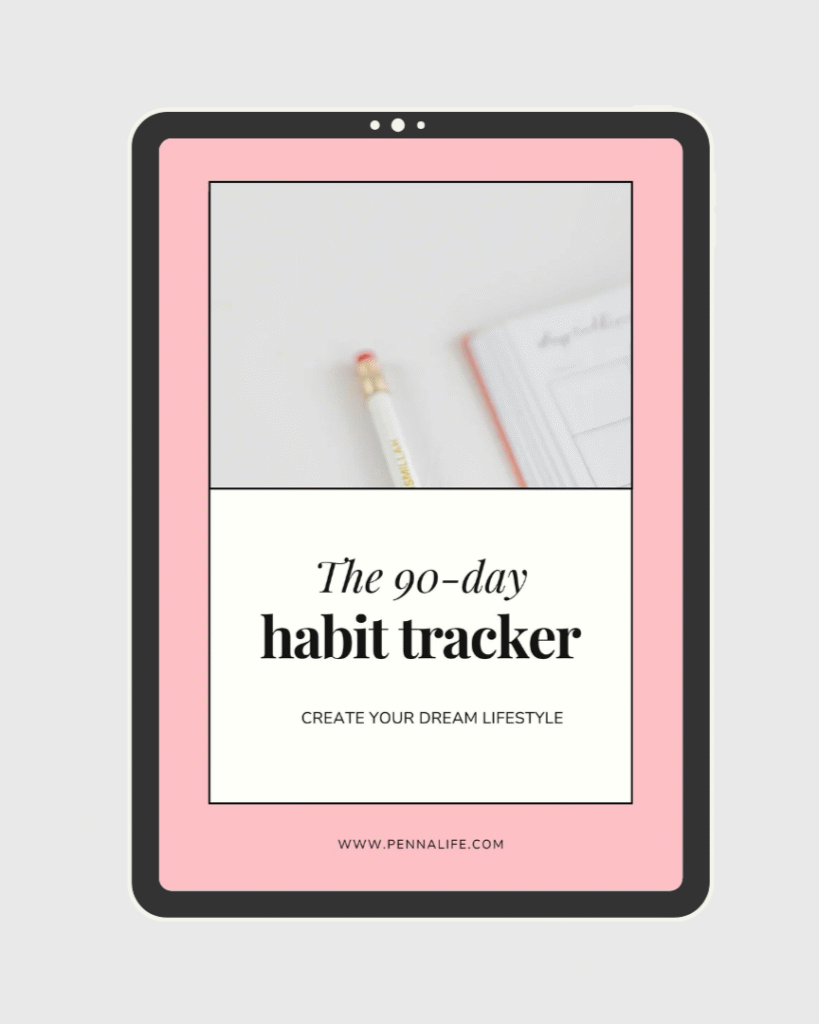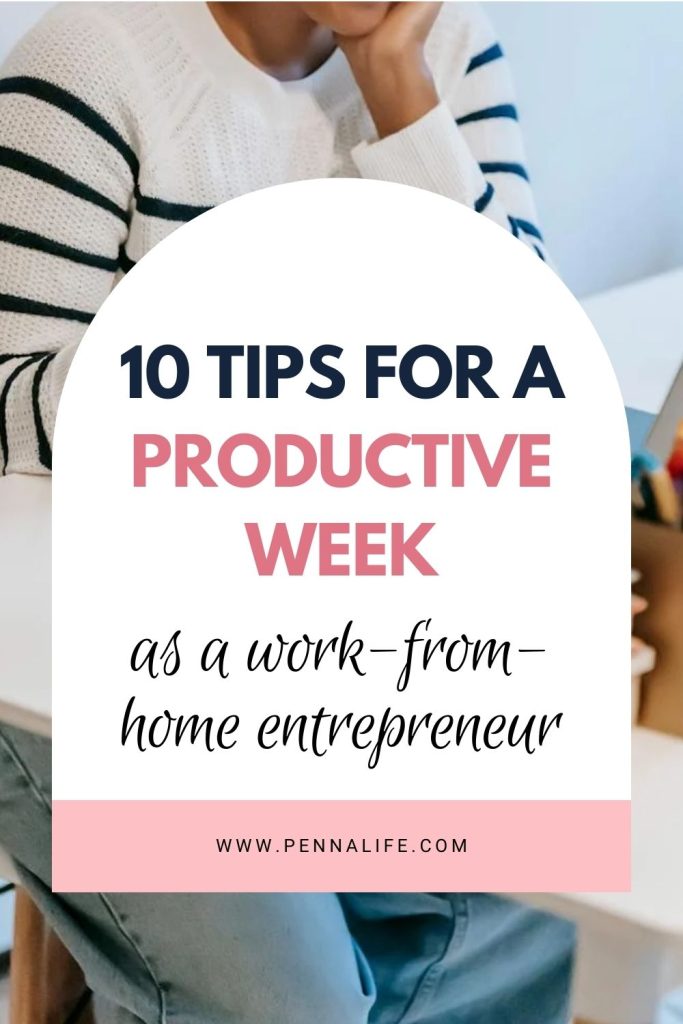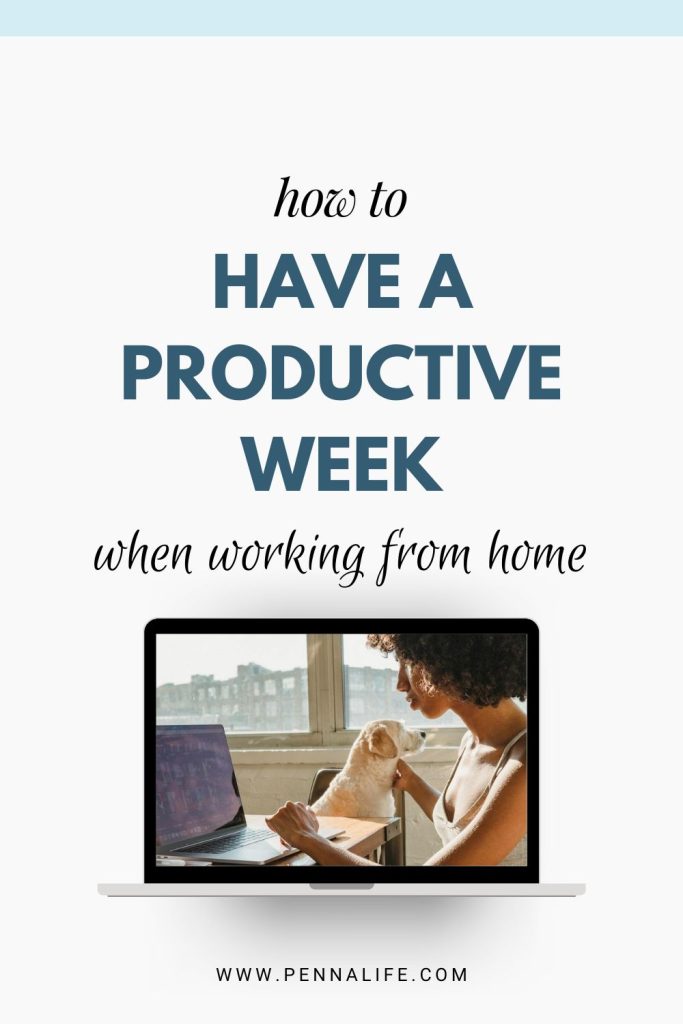
Working from home is exciting until… It’s 9:45 a.m., and you’re still in your bed scrolling through the web for some motivational quote to get you to work.
By the time you snap out of it, you realize it’s 3 p.m. and you can’t get much done anymore. And suddenly it’s the weekend.
But you can have the most productive week—ever.
In this guide, I share 10 practical work-from-home (WFH) tips for a productive week.
1. Put Your Goals Up for Eyeing
This is my number one tip for staying focused and getting things done.
Set your goals and put them on a vision board. Then, hang the board in a visible spot. Let it serve as daily motivation.
Something happens every time I see my vision board. It sends an influx of energy through me and gets me motivated to work.
2. Create a Work Schedule
Learn to separate work from your personal life.
As a WFH entrepreneur, it can be messy balancing work, family, and life. This is why you need a schedule that allows you to draw a line between your personal affairs and business.
Creating a work schedule shows when to be in “work mode” and when to retire for the day.
In your schedule, highlight your tasks for the week, including break times.
3. Build a Home Office
Want to have a productive week? Stop sprawling out on the couch. Stop working from your bed. Instead, move into your home office.
Just sitting in an office chair tucked underneath your work desk with your vision board staring right back at you will boost your productivity.
You’ll become more committed to crushing your goals if you do it from a desk rather than a bed. So, design your home office in a way that inspires you to work.
4. Start Your Day Early
One of the secrets to having a productive week is to wake up early every day—even if you’re not an early bird.
I used to be a night owl working till the wee hours until I realized my productivity was declining. Now, I sleep 8 hours and wake up at 6.15 a.m. for my productivity sprint.
This strategy allows me to complete my daily tasks.
5. Begin With a Productivity Trigger
Productivity triggers are activities you do to boost your energy and morale. They motivate you to “be productive.”
Your morning productivity trigger can be yoga, meditation, listening to podcasts, journaling, or running.
When you start your day in a happy and energetic mood, you accomplish tasks with more ease than when you do them without motivation.

free printable
The 90-Day Habit Tracker
Grab this tracker and finally stay consistent. With this one simple guide, you’ll see your progress, stay motivated, and build routines that actually last.
6. Write Down Your Daily Goals
A lot of times, even though you have your vision board hanging pretty in your workspace, you might still lack the motivation to work.
It can be because your goals are too big. You need to break them down into smaller, achievable tasks.
From your overall goals, outline your daily goals. Then, your weekly goals. From then on, you can set monthly, quarterly, and yearly goals.
Trying to tackle your one- or five-year plan might be too challenging to take on at first. But seeing them as weekly and daily tasks makes them much easier to accomplish.
7. Set Ground Rules for Work
If you don’t set ground rules, distractions will not let you achieve any goals at all.
Working from home is fun and sweet—until all the noise, notifications, emails, and Netflix intro sounds begin to gulp down your time. This is why you need to set boundaries and follow through with them.
Also, practice self-discipline to stay productive when working from home. When you set work rules, stick to them.
8. Take a Lot of Breaks
Taking breaks is one simple way to pamper yourself and relieve stress.
Get out of your chair sometimes. Take a stroll, prepare lunch, and stretch your back.
You’re doing your best to grow your business; don’t get stressed while at it. You can take an afternoon shower if you feel hot. It’s one of the perks that come with being a stay-at-home entrepreneur.
Do something to take your eyes off the screen for a little bit.
9. Start With “Bigger” (Not “Harder”) Tasks
That time of the morning, when you feel all fresh and energetic, is the best time to take on bigger tasks.
Not harder, but bigger tasks.
Bigger tasks are bulky activities that you can complete if you dedicate more time, attention, and energy to them. Hard tasks, on the other hand, are simply what they are. They require a higher degree of critical thinking, understanding, and time commitment.
For example, if you’re not a tech or coding expert, doing a programming-related task will be “hard.” But, as a blogger, your tasks might include keyword research, PR, graphics design, and blog writing. Here, blog writing is the bigger task because it comprises several other processes, such as writing, proofreading, and editing.
10. Dress for Work
This probably isn’t one of the points you expected, but it is solid and effective.
Clothing?! Well, yes.
Dressing up makes you feel as though you’re in a real workplace and gives you an urge for productivity. Your dress code doesn’t have to be as serious as a suit or heels. Just wear comfortable clothes that will put you in work mode.
Final Thoughts: 10 Best WFH Tips for a Productive Week
You can have productive days, weeks, and a life as a work-from-home entrepreneur.
With these tips above, you’ll be able to focus on work, keep distractions at bay, and get more done during the day.
Be kind to yourself while trying to increase productivity. Stay consistent, take things nice and slow, and find a work rhythm that works for you.
Looking for more productivity tips?








